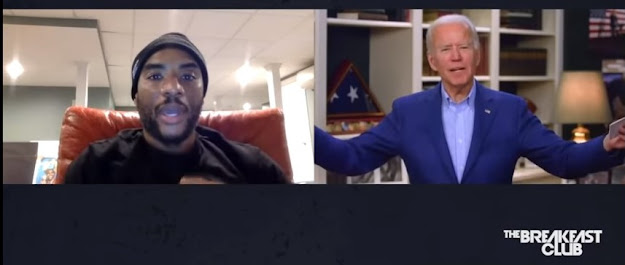Racial controversies are typical to presidential election campaigns - and the 2020 campaign has proved to be no different. Just days ago presumed Democratic Party nominee Joe Biden created his own racial controversy when he made a remark about the black vote during an interview during an livestreaming broadcast of the popular radio show, The Breakfast Club.
Monday, June 1, 2020
Wednesday, May 15, 2019
TEACHER ACTIVISM TAKES ON RACIAL AND SOCIAL JUSTICE
words by Charles Brooks
TEACHER ACTIVISM TAKES ON RACIAL AND SOCIAL JUSTICE
 |
| Photo credit: Charles Edward Miller |
Tuesday, December 11, 2018
AND STILL NO BLACK GOVERNORS...
words by Charles Brooks
AND STILL NO BLACK GOVERNORS
 |
| Photo credit: Onasill ~ Bill - 72m |
Wednesday, December 5, 2018
ABRAMS NOT GOING AWAY QUIETLY
 |
| Photo Credit: Marco Verch |
This year’s election cycle saw an unprecedented 3 blacks running for governor; Ben Jealous (Maryland), Stacey Abrams (Georgia) and Andrew Gillum (Florida) each won their respective primaries but lost in the general election. The race in Maryland was settled on election night with Jealous pulling in 43.5% of the vote with over one million votes, but lost by over 270, 000 votes. The races in Florida and Georgia, however were too close to call on election night forcing Gillum to withdraw his concession while Abrams pointed to the thousands of uncounted votes left on the table and just flatly refused to concede her race.
Wednesday, May 2, 2018
Book Review: A Conversation about Black Detroit in Black New York
Sunday, April 1, 2018
Book Review: Democracy in Black: How Race still enslaves the American Soul
Eddie S. Glaude Jr.
Crown: 288 pages
American Democracy, White Supremacy and Racism
By Charles Brooks
Sunday, September 24, 2017
Activists charge Mugabe is Right - on land reform & cruel economic sanctions
Over one hundred pro-Mugabe supporters marched through the streets in a protest demonstration led and organized by the December 12th Movement International Secretariat, a non-governmental organization with consultative status with the United Nations’ Economic and Social Council. “President Robert Mugabe and the people of Zimbabwe have consistently fought for political and economic independence,” Spokesman Omowale Clay continues, “control of their land is fundamental. These illegal sanctions infringe on their national sovereignty.”
Wednesday, August 9, 2017
President Trump police speech "jokes" about excessive use of force
Monday, July 24, 2017
Are mandatory minimums the answer?
The triumvirate of political leadership in Baltimore City has proposed controversial legislation in their tough approach to address the rising crime and murder rate. On July 14th, Mayor Catherine Pugh, City Council President Bernard Young and Police Commissioner Kenneth Davis were joined by a group of supporters in announcing the proposed measure. “We are proposing that we will make it a misdemeanor crime punishable by a mandatory sentence of one year and a fine of $1000 for possessing an illegal handgun within 100 yards of a school, church, a public building or a place of public assembly, said Mayor Pugh. She cited the need for the proposal by offering the following crime data: a gun was used in 90% of murders; nearly half of the 184 victims of crime have been arrested for a crime involving a handgun; and in 2016 60% of years imposed through sentencing was suspended. Current state law calls for a 30-day minimum sentence eligible for suspension.
Less than a year ago, the Gun Violence Enforcement Unit was created with the mission to get more convictions. At the time, Baltimore State Attorney Marilyn Mosby said: "to ensure the aggregation of intelligence that's extracted from my criminal strategies unit and the Baltimore Police Department is used to not only apprehend and charge, but to convict those who are administering gun violence in the city." In addition, there are the remnants from the former Mayor Sheila Dixon's term in office ten years ago such as GunStat, a gun task force and the gun offender registry. There is also the myriad of issues surrounding the defunct jail system.
What are your thoughts about this case - should he have to spend a year in jail considering the circumstances, i.e., no criminal history, nothing found from search, etc.
Update:
The initial proposal has been amended to apply mandatory sentences on the second offense with a gun or in connection with violent crime.
Further Reading













